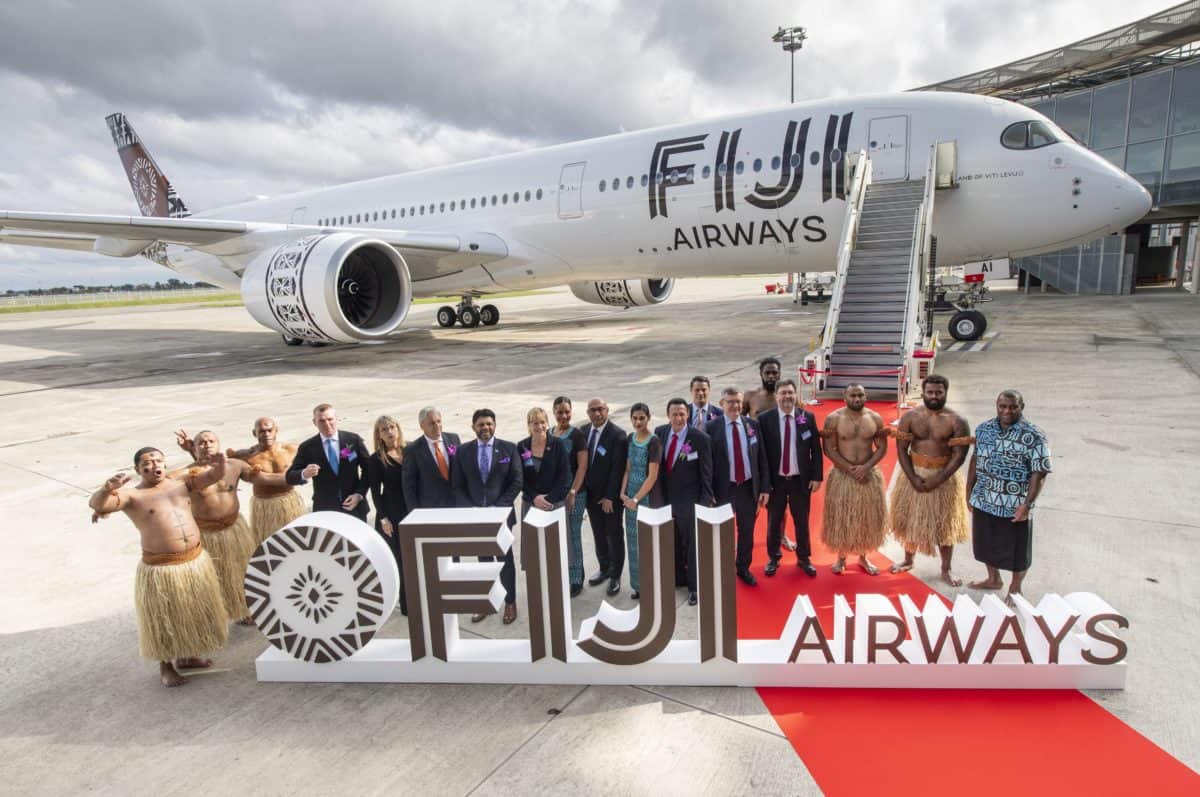The Fiji Government’s controversial decision to award the management contract for Airports Fiji Ltd (AFL) to its national airline, Fiji Airways, has intensified fears that a “conflict of interest” will be used to wring higher fees and charges from international airlines that use the facilities.
A shocked Association of South Pacific Airlines (ASPA) told Islands Business it was finding it difficult to understand the rationale behind the move and would be seeking an audience with the Government on the “very unusual” arrangement. “There does not seem to be any logical explanation so we are left in the dark and can only speculate,” said ASPA CEO, George Faktaufon.
“We do not know of any similar type of arrangement anywhere else in the world. The closest example is in Mauritius where Mauritius Airport owns Air Mauritius, but they operate independently. I think the clear conflict of interest, particularly where multiple airlines use the airport, will make such an arrangement difficult to function effectively.”
ASPA, whose members include airlines across the Pacific region and international aviation companies with business interests in the region, is particularly worried about how fees and charges will be levied and regulated, given the two companies are themselves financially struggling.
“Both Government entities have reported significant profits over the past several years. While we have access to the AFL Annual accounts, Fiji Airways has not published any annual accounts since 2009. Both entities received significant financial help during the past two years due to the impact of COVID-19. Both are currently struggling financially as the recovery will take time. We know that AFL’s profits have been derived mainly from several increases in fees and charges, approved by the Fiji Commerce Commission, despite strong objections from ASPA and IATA, because it was clear that AFL was over recovering its costs, by using overseas airport fees/charges for benchmarking. This is a flawed way to compare costs as the cost of doing business differs significantly,” said Faktaufon.
“Therefore the prospect of further increases in airport fees/charges is a major concern for the airlines considering their dire financial status. The other concern is the perception that FJ being the airport manager could grant itself concessions that would not be made available to other airlines operating at Nadi Airport.”
Individual airlines that use Fiji’s two international airports are silent on the issue, with only Air New Zealand confirming to Islands Business that it is aware and is closely monitoring the situation.
Air Niugini did not respond to questions, but sources said it was unlikely to do anything that would jeopardise its relationship with the Fijian government given it will be resuming its first post-COVID flight to Fiji next month (August 6) after two years of border closure.
The issue has also drawn criticism from local politicians.
National Federation Party Leader Biman Prasad labelled the arrangement – which was announced by Minister for Economy Aiyaz Sayed-Khaiyum during his National Budget 2022/2023 address last week – as “like asking Dracula to guard the blood bank”.
“Fiji Airways knows how to use airport services but not how to supply them. It doesn’t have the necessary skills to do that. But of course it will be charging a fee for this management contract – which will drive more money into Fiji Airways’ coffers to increase its profit. Things are becoming more and more distorted with these ever-increasing conflicts of interest,” said Prasad.
Questions sent to Fiji Airways regarding concerns about a potential conflict-of-interest remain unanswered.
Fiji Airways, according to Sayed-Khaiyum in his Budget address last week, “will simply become responsible for the day to day operations, with the relentless focus on the customers…who uses Fijian airports, our citizens and visitors alike, from baggage handling to gate management, retail experience and every other service known by the public, unseen by the public also in the industry as below the wing.”
“Fiji Airways management mandate will be to step up airport infrastructure nationwide, meaning to upgrade our existing airports and build new ones. Starting in Nadi, they will upgrade the baggage handling and air site infrastructure and enhance the arrival experience, improve customer amenities at Nausori Airport and review our outer island facilities, including Labasa and Savusavu with an eye for major capital development opportunities,” he said.

7 Comments on “Regional airlines “in the dark” on Fiji’s new airport management deal”
Comments are closed.